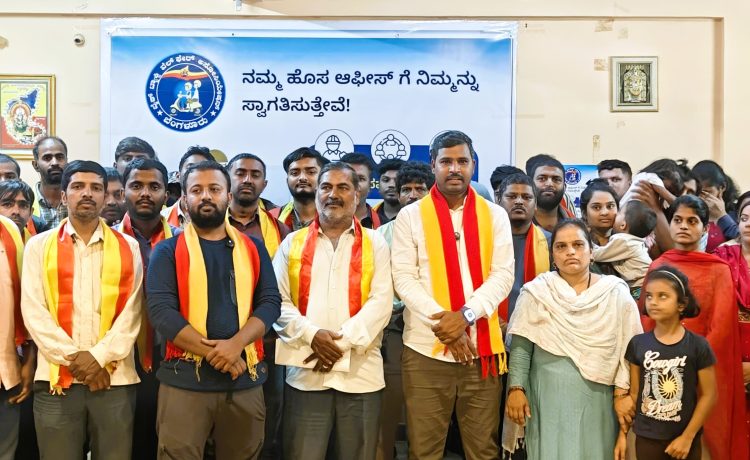Karnataka’s Bike Taxi Riders Plead for Livelihood Protection Amid Regulatory Uncertainty
Bengaluru: Thousands of bike taxi riders across Karnataka have appealed to the state government to safeguard their livelihoods, citing inconsistent policies that threaten their earnings while allowing similar gig economy services, such as food delivery, to operate freely.
In an open letter addressed to Transport Minister Ramalinga Reddy, the Bike Taxi Welfare Association highlighted the crucial role bike taxis play in urban mobility, particularly in high-density cities like Bengaluru, Mysuru, and Hubballi. The riders, many of whom are Kannadigas, described the service as their sole means of dignified income, urging the government to reconsider policies that unfairly target passenger transport while sparing delivery services.
A Lifeline for Gig Workers
Bike taxis have become an indispensable part of Karnataka’s transport ecosystem over the past eight years, offering affordable and efficient last-mile connectivity. For many riders, this work is more than just a job—it’s a pathway to financial stability.
“For us, riding a bike taxi is not just a means of transport. It is our bread and butter, our hope for a better future, and in many cases, the only way we can provide for our families with dignity,” the letter stated.
Most riders earn between ₹30,000 to ₹35,000 per month, enabling them to support their families, educate their children, and care for elderly parents. Many were previously unemployed or worked in low-paying daily wage jobs before finding economic stability through bike taxi services.
Regulatory Disparity Sparks Outcry
The riders expressed confusion and distress over the government’s inconsistent treatment of bike taxis compared to delivery services. While both operate under the Motor Vehicles Act and involve commercial use of two-wheelers, passenger transport faces stringent restrictions, whereas food and parcel delivery bikes continue unrestricted.
“Why should a Kannadiga rider working as a bike taxi face penalties, while someone delivering a food parcel on the same road, using the same type of bike, is allowed to work freely?” the association questioned.
This disparity, they argue, not only jeopardizes their livelihoods but also sends a discouraging message to local youth seeking employment in the gig economy.
Public Service and Economic Contribution
Beyond personal earnings, bike taxis serve a critical public need. Students, working professionals, and women relying on safe late-night commutes depend on these services daily. The riders emphasized their willingness to comply with regulations—provided the policies are fair and inclusive.
“We don’t ask for favors. We only request a chance to be heard, to be included in the conversation about our own livelihoods,” the letter read.
Appeal for Fair Policy Reform
The association urged the government to establish a transparent and equitable regulatory framework that recognizes bike taxis as legitimate gig work. They stressed that any policy should be formulated with stakeholder consultations to reflect ground realities.
“We are ready to work within any law. All we ask is that the law treats us with dignity and does not take away our only means of livelihood,” the riders pleaded.
As the Karnataka government deliberates on mobility policies, the fate of thousands of bike taxi riders hangs in the balance. Their appeal underscores the need for balanced regulations that protect both workers and public interest—without arbitrary distinctions that undermine economic opportunities.
The Transport Ministry has yet to respond to the riders’ concerns. For now, the bike taxi community remains hopeful that their voices will be heard before irreversible damage is done to their livelihoods.
Contact For Media Updates: +91-93531 21474 [WhatsApp]
Key Quotes
-
Rider’s Plea:
“This job empowered me to educate my children and care for my parents. If bike taxis are banned, I’ll have to return to daily wage work with half the income.”
— Suresh Kumar, Bike Taxi Rider (Bengaluru) -
On Policy Disparity:
“How is delivering food legal, but carrying a passenger illegal? Both use the same bike and roads. The government must stop this discrimination.”
— Priya M., Rider & Single Mother (Mysuru) -
Association’s Appeal:
“We urge the Transport Minister to consult riders before finalizing policies. A blanket ban will push thousands into poverty overnight.”
— Bike Taxi Welfare Association Spokesperson
Q&A: Understanding the Bike Taxi Debate
Q: Why are bike taxis facing restrictions in Karnataka?
A: The state government considers passenger transport on two-wheelers a violation of permit rules unless registered as commercial vehicles (yellow plates). However, enforcement has been inconsistent, with delivery bikes (white plates) operating freely.
Q: What are riders demanding?
A: Equal treatment under the law—either extend the same exemptions granted to delivery services or create a dedicated bike taxi policy with affordable permits.
Q: How many livelihoods are at risk?
A: Over 50,000 riders in Karnataka, with nearly 80% from low-income households, depend on bike taxis as their primary income source.
![]()












Great post, I conceive website owners should larn a lot from this site its rattling user genial.
Airport Transfers Bahamas operates a luxury fleet, prioritizing client comfort and safety. Our vehicles are the epitome of elegance, offering a secure and stylish travel experience.
For those seeking both luxury and safety, Airport Transfers Bahamas offers an elite fleet. Enjoy comfort and confidence knowing our vehicles meet top safety standards.